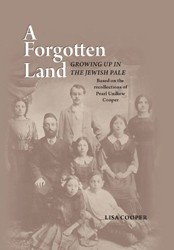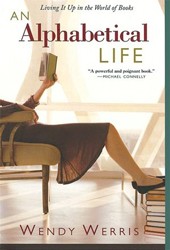Memoirs can be perilous for writer and reader alike, and Leslie Gilbert-Lurie tackles the genre’s pitfalls head-on by recreating both her mother’s life followed by the writer’s look at her own life.
Rita (Ruchel) Gamss struggled through 1942 – 44 in a Polish attic. Watching helplessly as her mother and brother die, she subsequently makes her pitiful, courageous way to the U.S., then rebuilds her life barricaded by scars from her experience. In all italics, “Mom’s” adjustment to distress and happiness fills the first half of this book, with much dialogue, peppered by Yiddish and un-Anglicized spelling.
In the second half of the memoir, Rita’s daughter, the author (now in regular type), unveils traumas and anxieties of the Holocaust that have shaped her. Leslie Gilbert-Lurie “accomplished”— as attorney, writer, and executive in the commercial and not-for-profit world. But she never overcomes her fears (attributing to superstition bona-fide rituals such as affixing a mezuzah to her door) or the emotional legacy that surrounded her. To her dismay, she sees these same inner stresses emerging in her young daughter.
Readers of various ageas will be attracted to Bending Toward the Sun, including young adults. Acknowledgements, photographs, prologue.
Arlene B. Soifer earned degrees in English, and has had many years of experience as a freelance writer, editor, and public relations professional.
Discussion Questions
Courtesy of Leslie Gilbert-Lurie
- If you could have chosen to read the perspective of another character in the book, whose would you have chosen and why?
- If you had the opportunity to ask your father, mother, or grandparent any question about his or her past, what would you ask?
- What about Rita’s past influenced her own mothering style? What about Rita’s past contributed to Leslie’s and Mikaela’s determination and competitive spirits?
- Do you consider Stashik and Maria Grajolski to be heroes and if so, why? Who were the other “upstanders” in this story?
- Would you have invited Rita’s family to hide in your home? How close to your inner circle would they have had to be? What do you think you would have done in that situation?
- Do you suspect that the impact of the Holocaust will diminish as the years go by? Will future generations be less affected by their ancestor’s experiences?
- Why are children from the same family impacted differently by trauma that their parents experienced? What traumatic event in your parent’s life, or your own, impacted you or one of your children?
- What is the significance of telling the story from the perspectives of three generations? Do you believe that the cycle of trauma explored in Bending Toward the Sun will inevitably continue beyond the third generation?
- How do you believe Rita’s relationships — with her husband, children, friends — would have been different were it not for the Holocaust? What key event that you experienced altered one of your primary relationships?
- What lessons can we take from the Holocaust to better the world today?
- What can we learn from Rita’s story and the lessons of the Holocaust to inform the way we combat rising anti-Semitism, and hate crimes in general, in the world today? How should these same lessons inform our view on the rise of dictators in the world today, and the way they should be confronted?
- If you had the same traumatic experiences as Rita, would be able to forgive the Nazis for the crimes they committed? Would you feel differently if you were the child of parents who had been the victims of genocide?



